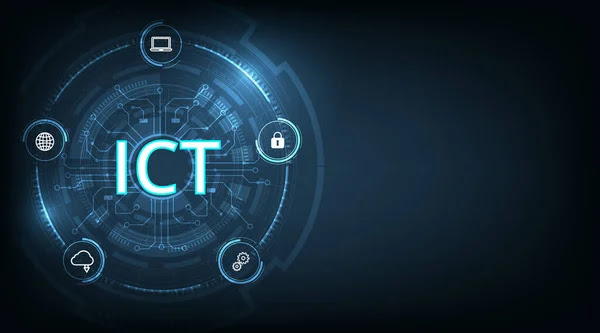Artificial Intelligence (AI) has emerged as a powerful tool with the potential to address some of the most pressing global challenges. As technology advances, AI's applications extend beyond commercial interests to tackle critical issues affecting society and the planet. From healthcare and education to environmental conservation and disaster response, AI for social good is revolutionizing how we approach and solve complex problems. In this article, we will explore the positive impact of AI in addressing global challenges and its potential to create a more equitable and sustainable world.
AI in Healthcare: Improving Diagnosis and Treatment
One of the most significant contributions of AI for social good is in the field of healthcare. AI-powered medical diagnostics and treatment hold the promise of faster, more accurate diagnoses and improved patient outcomes.
AI algorithms can analyze vast amounts of patient data, including medical records, imaging results, and genetic information. By recognizing patterns and correlations, AI can aid in early disease detection, leading to timely interventions and potentially saving lives.
Furthermore, AI is revolutionizing drug discovery, accelerating the process of identifying potential drug candidates. AI-powered simulations and molecular modeling enable researchers to predict drug interactions and efficacy, opening doors to innovative therapies for various diseases.
In regions with limited healthcare resources, AI-driven telemedicine and diagnostic tools can bridge the gap, providing access to expert medical advice and diagnosis, particularly in rural and underserved areas.
AI in Education: Enhancing Learning and Accessibility
Education is a fundamental driver of societal progress, and AI is playing a transformative role in enhancing learning experiences and accessibility.
AI-powered personalized learning platforms can analyze individual student data and deliver tailored educational content. This approach helps students learn at their own pace, grasp complex concepts, and fill knowledge gaps, fostering a deeper understanding of subjects.
Moreover, AI-driven virtual tutors and language processing technologies enable students with diverse needs, including those with disabilities, to access educational content and receive real-time support. This inclusivity in education promotes equity and ensures that no student is left behind.
In underprivileged areas with limited access to formal education, AI-powered EdTech initiatives offer innovative learning solutions and democratize education, empowering individuals to acquire knowledge and skills for a brighter future.
AI for Environmental Conservation and Sustainability
Global challenges such as climate change, environmental degradation, and biodiversity loss demand urgent action. AI is proving to be a valuable ally in the fight for environmental conservation and sustainability.
AI-enabled satellite imagery and remote sensing technologies can monitor deforestation, track wildlife populations, and assess environmental changes in real-time. This data-driven approach enhances our understanding of ecosystems, guiding conservation efforts and informing policymaking.
Furthermore, AI is optimizing resource management in agriculture and water conservation. AI-powered systems can analyze agricultural data, predict crop yields, and optimize irrigation schedules, contributing to more sustainable and efficient farming practices.
AI for climate modeling and weather prediction is improving disaster preparedness and response. By analyzing historical weather data, AI models can anticipate extreme weather events, enabling timely evacuations and emergency response measures.
AI in Humanitarian Aid and Disaster Response
In times of crisis, AI-driven technologies are making a significant difference in humanitarian aid and disaster response efforts.
Natural language processing and sentiment analysis enable AI to process and analyze vast amounts of social media data, providing real-time information on disaster-affected areas, resource needs, and emergency situations. This information aids in rapid response planning and resource allocation.
AI-powered robots and drones can access hazardous environments and deliver medical supplies, food, and other essential aid, reducing the risks faced by human responders in dangerous situations.
Additionally, AI-driven predictive analytics can forecast population movements during emergencies, assisting humanitarian organizations in planning and coordinating aid distribution effectively.
Ethical Considerations and Social Impact
While AI for social good holds immense potential, it also raises ethical considerations and potential risks.
Ensuring that AI technologies are unbiased and free from discrimination is essential. AI algorithms must be carefully designed and trained on diverse datasets to avoid perpetuating social inequalities.
Data privacy and security are paramount, especially when handling sensitive information related to healthcare, education, and disaster response. Adhering to ethical data practices and data protection regulations is crucial to safeguarding individuals' rights and privacy.
Transparency in AI decision-making is essential, particularly in critical applications like healthcare and disaster response. Understanding how AI reaches its conclusions promotes trust and accountability.
Conclusion
AI for social good is transforming how we address global challenges, creating opportunities for positive change and sustainable development. From healthcare and education to environmental conservation and disaster response, AI's applications hold the potential to improve lives and protect our planet.
As AI technologies continue to evolve, it is imperative to navigate their deployment responsibly, ensuring that they align with ethical principles, promote inclusivity, and prioritize the well-being of individuals and communities.
By harnessing AI for social good, we can build a more equitable, sustainable, and resilient world, where technology becomes a force for positive impact and a catalyst for progress. Collaborative efforts between governments, organizations, and the AI community are essential to unlock the full potential of AI for social good and create a better future for all.
ChatGPT


